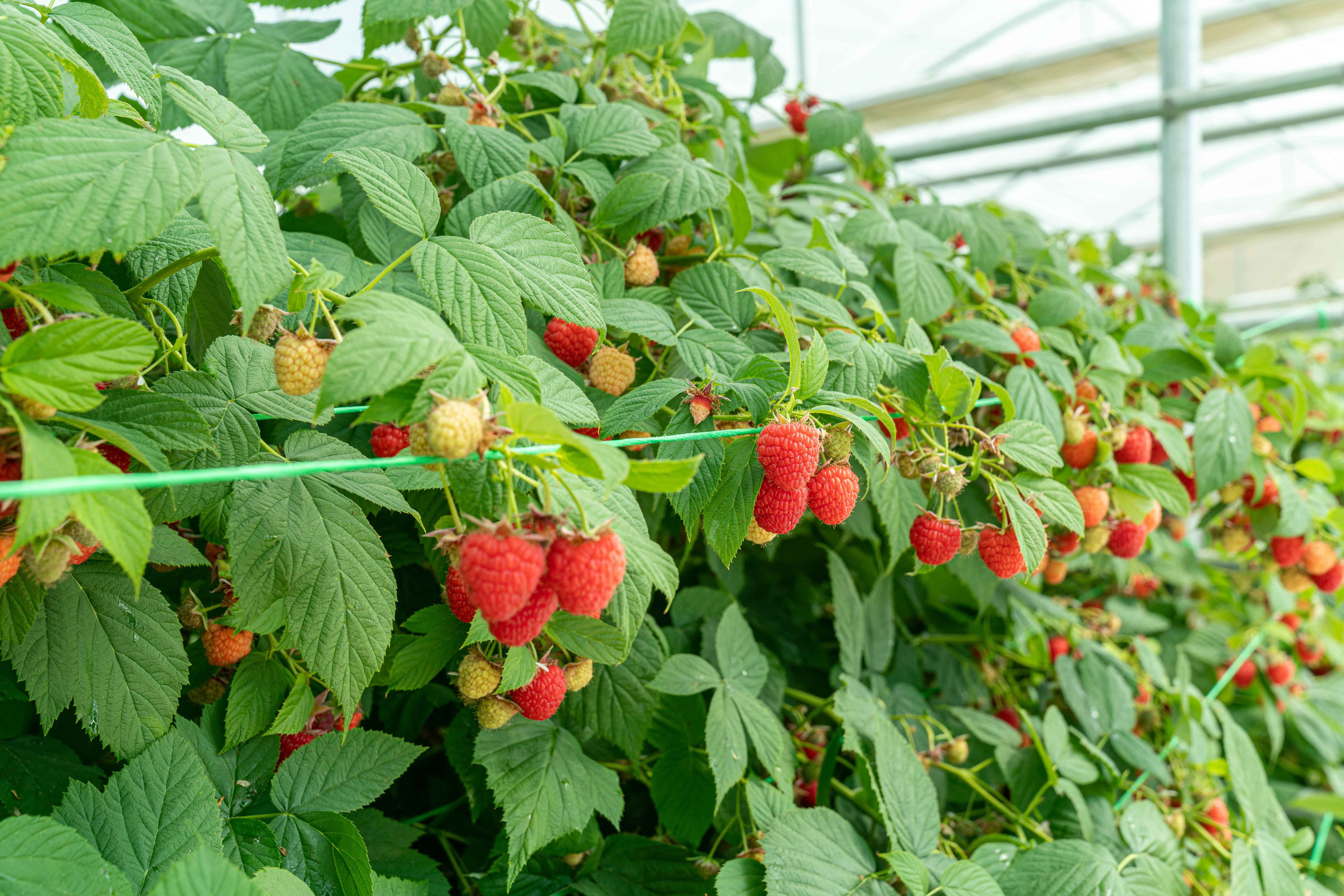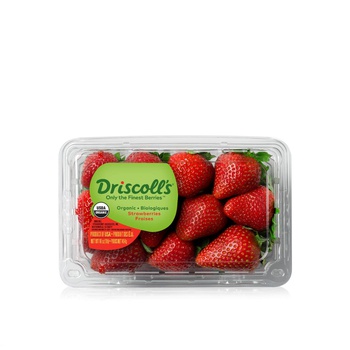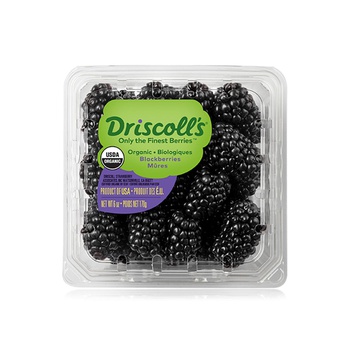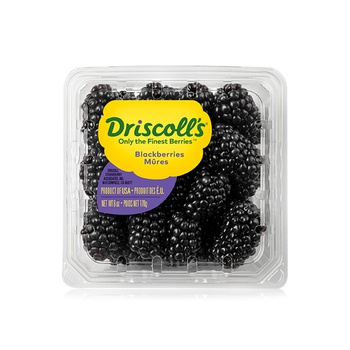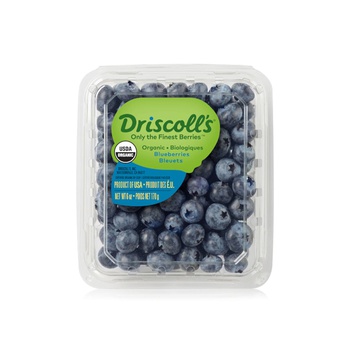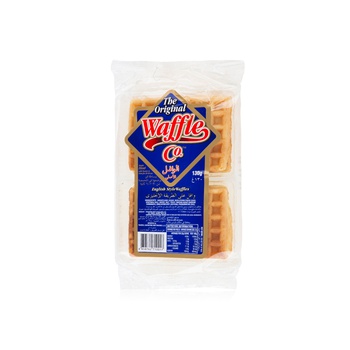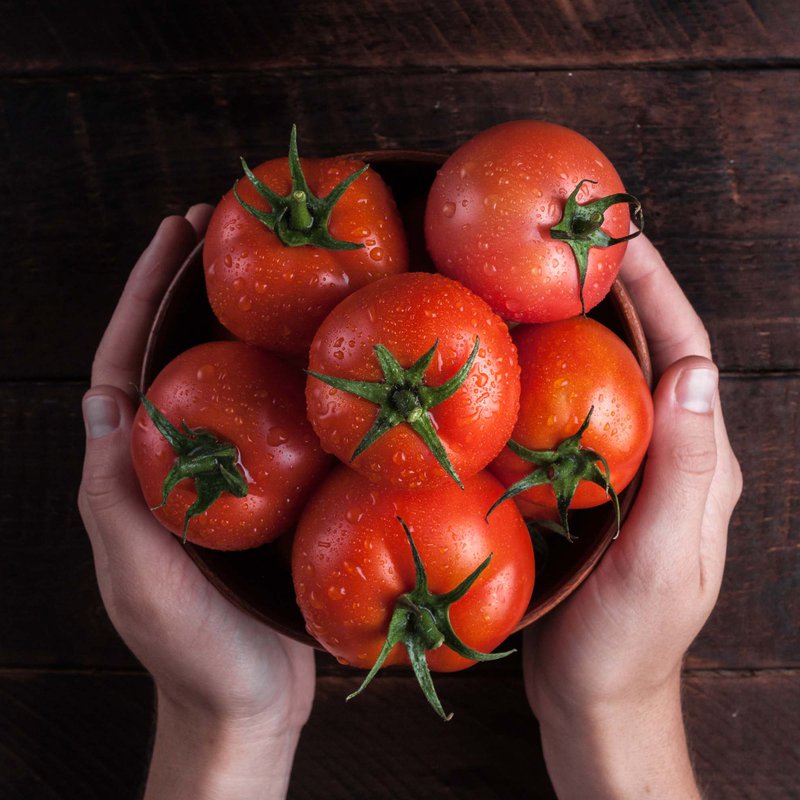“Driscoll’s has had a presence in the UAE for more than 30 years, offering a variety of high-quality berries that are imported from its farms in the US, UK, Mexico, Morocco and Portugal. However, over the past few years, the UAE has increasingly focused on reducing imported produce, and developing local farming capabilities to strengthen food security in the region. Thus, the recent partnership between Driscoll’s and Global Farms in Al Ain couldn’t have come at a better time.
The latter is a technology-driven agricultural enterprise with farms around the world, including the UAE. It aims to provide consumers with healthy and hygienically produced food that’s grown locally. As a result, it also reduces carbon emissions by cutting transportation costs.
“Global Farms has done extensive research on temperature and climate over the last decade; and its facilities are world-class. So, it made sense to partner with it for this project,” says Paul Morgan, sales manager for Driscoll’s Middle East.
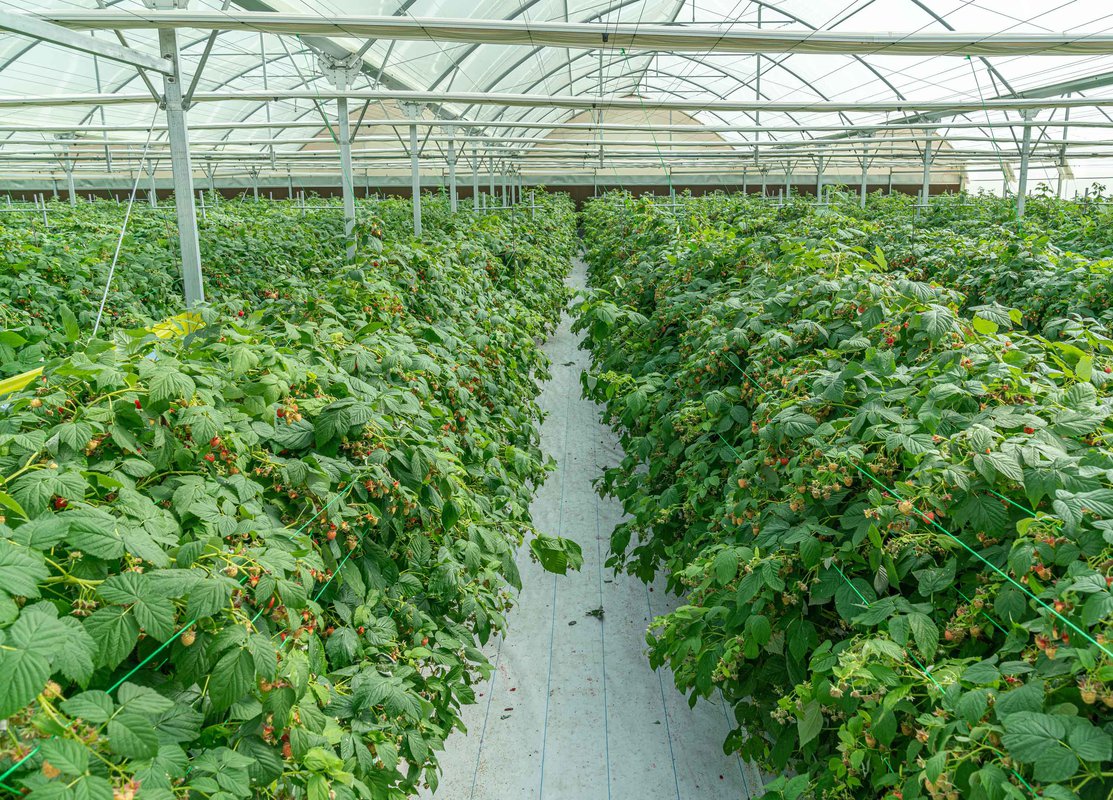
The UAE’s desert climate is a big challenge when it comes to cultivating raspberries. Native to Europe, these delicate berries need cooler conditions to thrive. Global Farms’ facility in Al Ain has 12 greenhouses dedicated to raspberry production, with each covering 6,000 square metres. The microclimate created inside the greenhouses is constantly monitored to ensure the plants thrive. Bumblebees are also released inside the greenhouses as a natural defence against insects that feed on the berries.
"Driscoll’s wants to be more locally relevant, making sure the UAE and GCC populations have access to great-tasting berries"
The first batch of saplings were planted in the first week of December 2020 and took roughly two months to mature. Everything from harvesting to packaging is done manually.
“Since this is a delicate fruit, we can’t afford to have any breaks in the chain of production as that results in the produce being rejected. It’s also a complete loss for us,” explains Georges Daccaches, COO of Global Farms. “The pickers place the berries in punnets, which are then transferred to the packhouse within one hour of harvesting. Once inside the packhouse, each punnet is weighed and the berries are checked for colour, firmness and possible defects. From there they are moved into a pre-cooling chamber.”
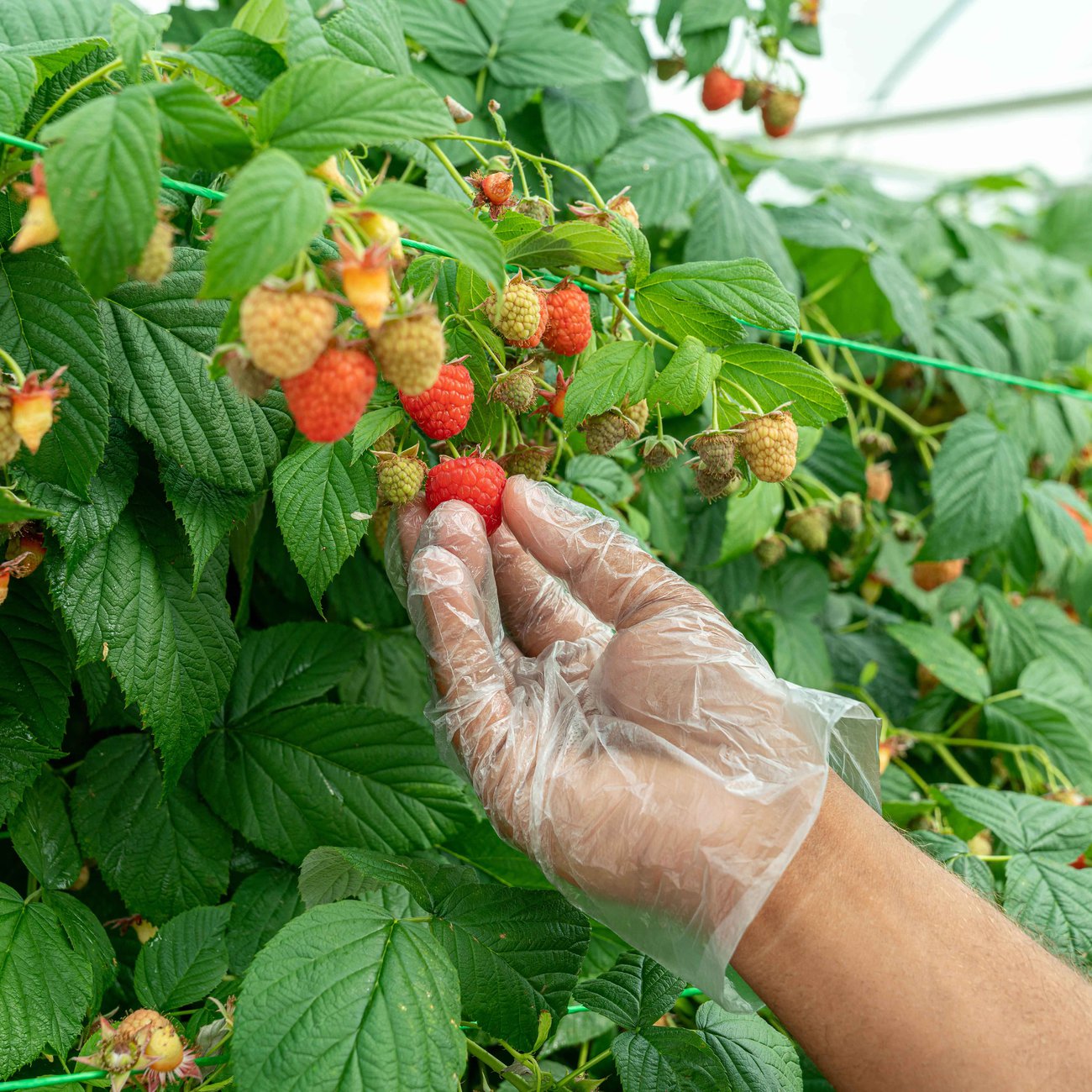
Pickers have to be extra careful while handling this delicate berry
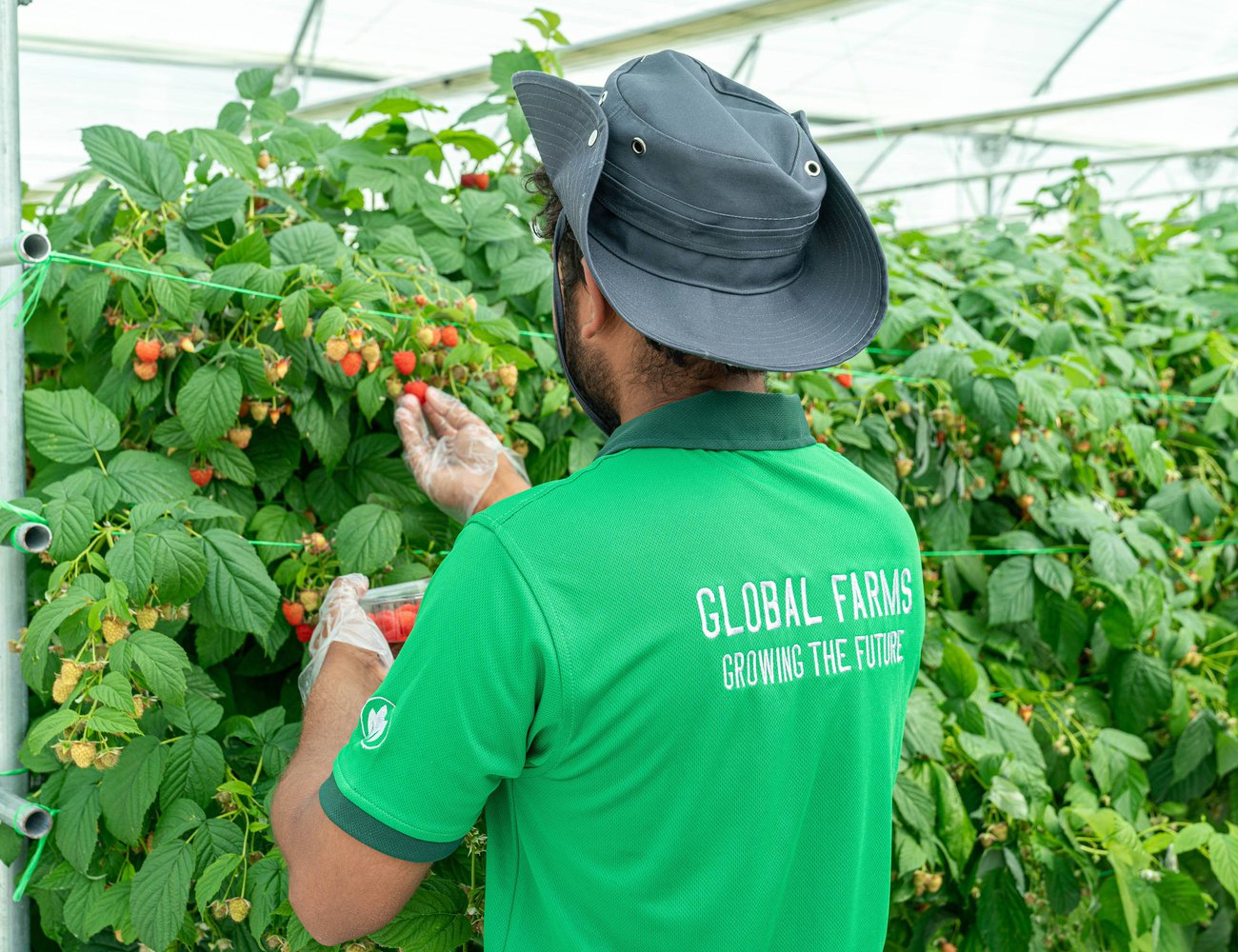
Berries are placed in punnets and moved to the packhouse within an hour
When berries are picked, their core temperatures are around 30˚C. In order to have a shelf life of about a week, they must be cooled to 2-3˚C within three hours. They are then transferred to a cold storage unit and further cooled to 0.5-1˚C before they are moved to a distribution facility. They reach Spinneys shelves less than a day later.
“Driscoll’s wants to be more locally relevant, making sure the UAE and GCC populations have access to great-tasting berries that have been produced just down the road from where they live,” says Paul.
Both Paul and Georges have received positive feedback from consumers, with many remarking that they couldn’t believe they were eating raspberries grown in the region. Locally grown Driscoll’s Raspberries are now available at Spinneys stores across the country.
